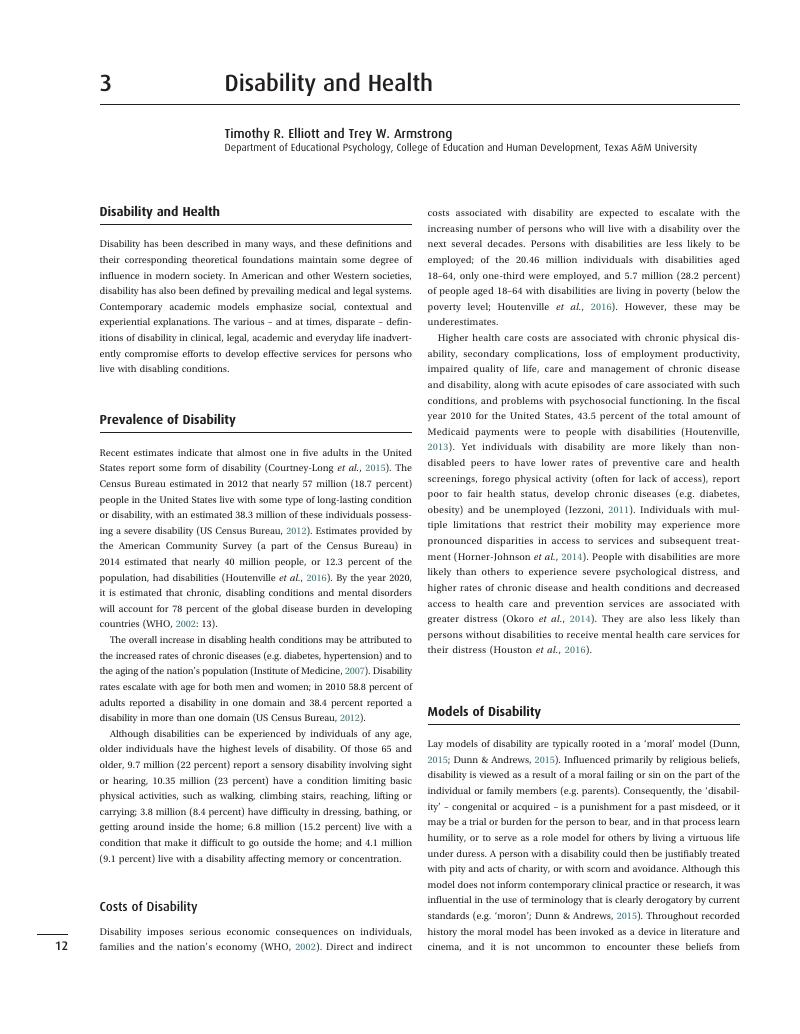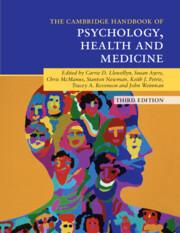3 - Disability and Health
from Theme 1: - Lifecourse and Health
Published online by Cambridge University Press: 05 June 2019
Summary

- Type
- Chapter
- Information
- Cambridge Handbook of Psychology, Health and Medicine , pp. 12 - 15Publisher: Cambridge University PressPrint publication year: 2019



